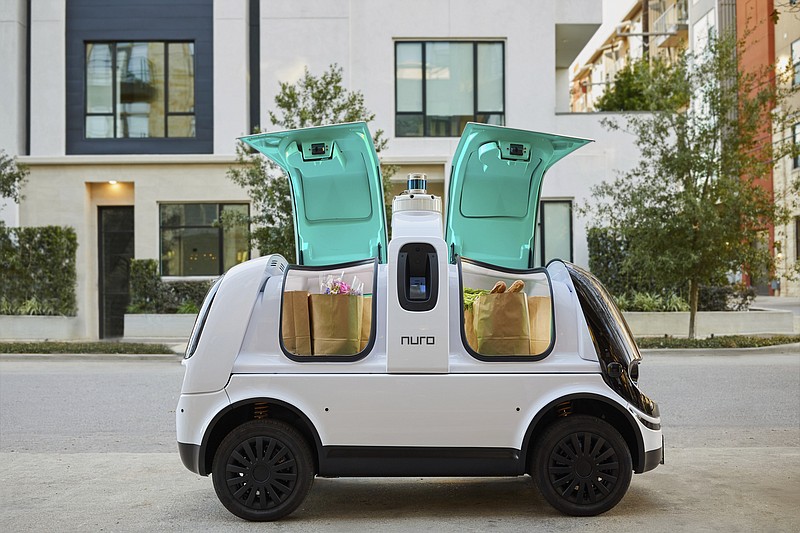DETROIT (AP) — For the first time, the U.S. government’s highway safety agency has approved a company’s request to deploy a self-driving vehicle that doesn’t need to meet the same federal safety standards for cars and trucks driven by humans.
The National Highway Traffic Safety Administration granted temporary approval for Silicon Valley robotics company Nuro to run low-speed autonomous delivery vehicles that were designed without any accommodations for human drivers. That means no side and rearview mirrors, windshield wipers, steering wheels or brake pedals.
The vehicles previously were subject to federal standards for low-speed vehicles that travel less than 25 miles per hour. Those didn’t need to have steering wheels, brake pedals or human backup drivers but were required to have windshield wipers, backup camera displays and mirrors. Nuro’s battery-powered vehicles can be monitored and controlled remotely by a human operator, if needed.
The approval is the first sign NHTSA is moving from abstract statements and voluntary standards governing autonomous vehicles to actual regulation, said Bryant Walker Smith, a University of South Carolina law professor who studies vehicle automation. It’s a signal the agency, which has stated publicly it doesn’t want to stand in the way of the new technology, is likely to approve more vehicles, he said.
“This is the first time that the agency said ‘yes we approve this vehicle that does not meet traditional driver-oriented standards,’” he said. “That’s a big step because it makes it much more concrete, more real for the agency and really for the public.”
Under the temporary approval, Nuro will have to make real-time safety reports to the agency. Nuro also will have to hold regular meetings with the agency and reach out to the community in areas where the vehicles will travel.

